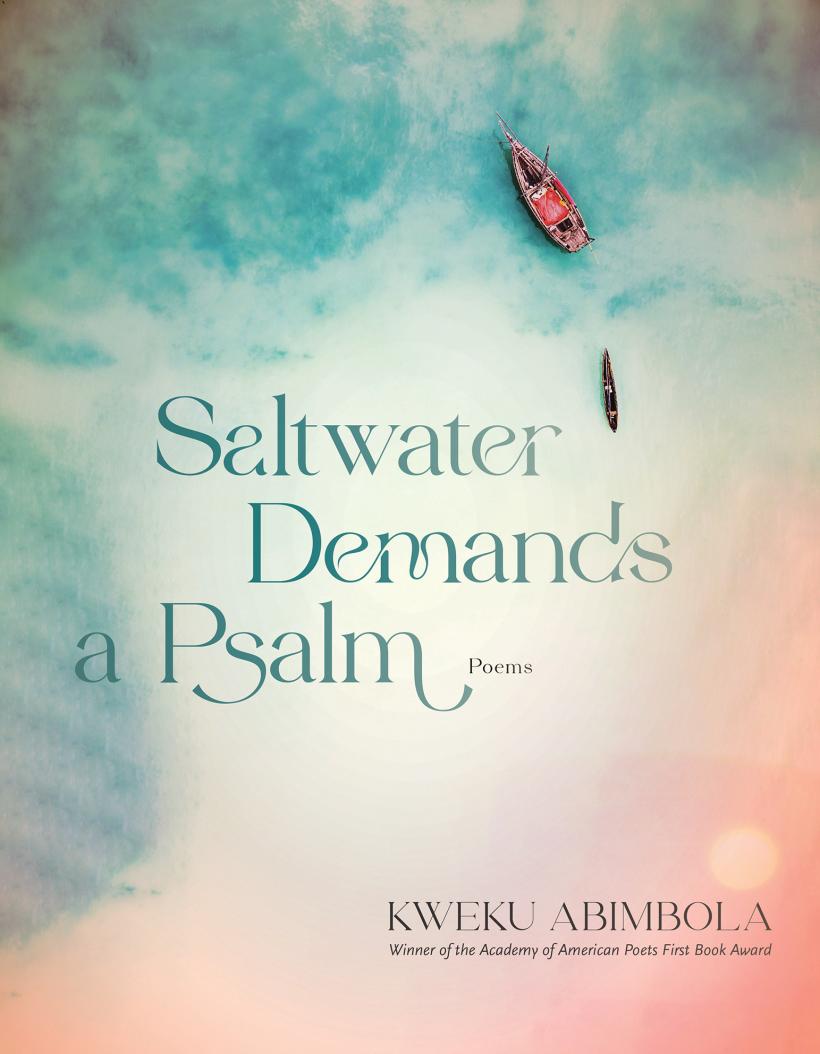Saltwater Demands a Psalm
- “Saltwater Demands a Psalm blends Ghanaian culture and Black American experience in a cosmology of celebration and resistance.”—The New York Times Book Review
In Ghana’s Akan tradition, on the eighth day of life a child is named according to the day of the week on which they were born. This marks their true birth. In Kweku Abimbola’s rhapsodic debut, the intimacy of this practice yields an intricately layered poetics of time and body based in Black possibility, ancestry, and joy. While odes and praise songs celebrate rituals of self- and collective-care—of durags, stank faces, and dance—Abimbola’s elegies imagine alternate lives and afterlives for those slain by police, returning to naming as a means of rebirth and reconnection following the lost understanding of time and space that accompanies Black death. Saltwater Demands a Psalm creates a cosmology in search of Black eternity governed by Adinkra symbols—pictographs central to Ghanaian language and culture in their proverbial meanings—and rooted in units of time created from the rhythms of Black life. These poems groove, remix, and recenter African language and spiritual practice to rejoice in liberation’s struggles and triumphs. Abimbola’s poetry invokes the ecstasy and sorrow of saying the names of the departed, of seeing and being seen, of being called and calling back.
Praise
“Elegant. . . . A brave and gracious debut.”—Diego Báez, Booklist
- “Abimbola’s storytelling enacts both lineage and lesson. . . . Rich in the tonal shifts of memory, encompassing both elegies and odes to ‘Stank face,’ DJs, and ‘my durag,’ the collection erupts in celebration in a poem titled with the symbol for chief, which opens, ‘Black joy circles. / Black joy ellipses.’”—Rebecca Morgan Frank, Poetry Foundation's Harriet Books
- “A powerful and stirring debut from one of the most unique voices in American poetry. . . . This is a technically skilled, deeply thoughtful collection that will resonate especially well for fans of Claudia Rankine and Danez Smith.”—Ronnie K. Stephens, The Poetry Question
- “A robust collage of forty poems that pays homage to symbolic parts of the Black experience.”—Delight Chinenye Ejiaka, World Literature Today





